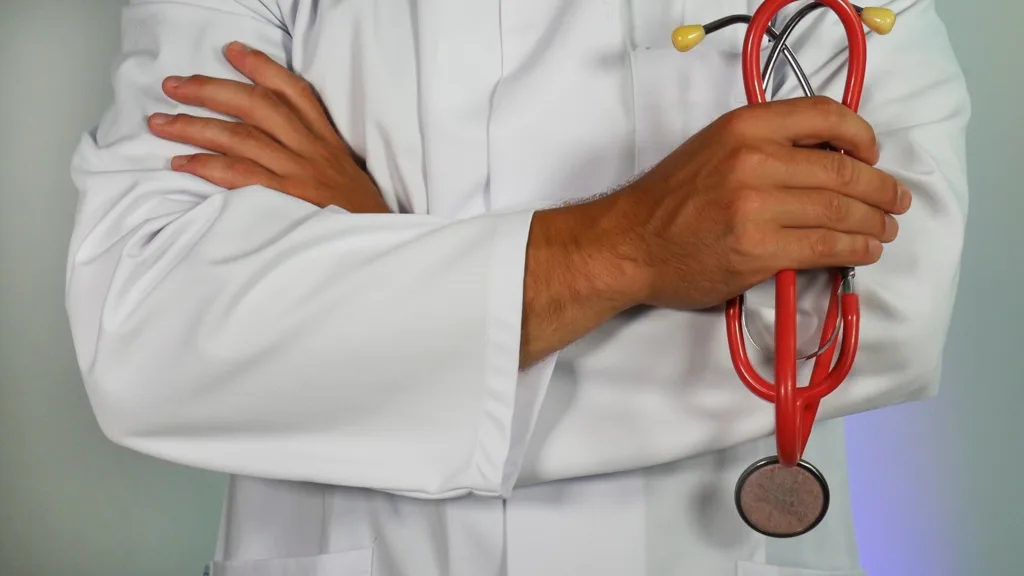Scribing is an increasingly popular way for pre-med students to gain clinical experience. It involves working as a medical scribe, a person who assists doctors by documenting their patient encounters. The role of a scribe varies depending on the doctor, but typically includes taking notes on the patient’s medical history, physical exam, and treatment plan. The scribe also helps with other tasks, such as ordering tests and medications.
One of the biggest advantages of scribing is that it provides students with direct patient contact. As a scribe, you will be in the room with the doctor and the patient, observing the interaction and taking notes. This gives you a firsthand look at how doctors interact with patients and how they make medical decisions. It also allows you to see a wide range of medical conditions and treatments, which can be invaluable when applying to medical school.
Scribing is also an excellent way to build relationships with doctors and other healthcare professionals. As a scribe, you will work closely with the doctor and their support staff, such as nurses and medical assistants. This can be a great opportunity to ask questions and learn more aout the healthcare industry. You may also be able to shadow other healthcare professionals, such as radiology technicians or physical therapists, as part of your scribe duties.
Another benefit of scribing is that it can help you develop important skills that are essential for medical school and beyond. These include attention to detail, time management, and communication skills. As a scribe, you will need to be able to take accurate notes quickly and efficiently, while also communicating effectively with the doctor and other healthcare professionals.
While scribing can be a great way to gain clinical experience, it is important to keep in mind that it is not a substitute for other types of experience, such as volunteering or working as a medical assistant. These experiences may provide opportunities to work more closely with patients and to take on more responsibility, which can be beneficial when applying to medical school.
Scribing can be an excellent way to gain clinical experience and to learn more about the healthcare industry. It provides students with direct patient contact, the opportunity to build relationships with healthcare professionals, and the chance to develop important skills. However, it is important to remember that scribing is just one of many ways to gain clinical experience, and that it should be used in conjunction with other types of experience to build a well-rounded application for medical school.
Is Scribing Shadowing Or Clinical Experience?
Scribing is considered a type of clinical experience, as it involves working closely with patients and physicians in a medical setting. Scribes are responsible for documenting patient encounters and medical information in real-time, which requires them to interact with patients to collect accurate information and to communicate with physicians to ensure that all necssary information is recorded. While scribing does involve some elements of shadowing, such as observing physician-patient interactions and procedures, it also involves active participation in medical documentation and patient care. Therefore, it is generally considered to be a form of clinical experience that can be valuable for individuals interested in pursuing careers in healthcare.

Is Scribing Good Enough Clinical Experience?
Scribing can be considered as good clinical experience as it provides an opportunity to work closely with physicians and other healthcare professionals. It involves documenting patient information, such as medical history, symptoms, and treatment plans, in real-time during patient encounters. This experience can help aspiring medical professionals gain a better understanding of the medical field, including medical terminology, patient care, and the workflow of a healthcare setting.
However, it is important to note that scribing alone may not be sufficient for gaining a comprehensive understanding of the healthcare industry. It is essential to seek out additional opportunities, such as shadowing physicians or volunteering in a clinical setting, to gain a well-rounded perspective on the field. These experiences can provde a more hands-on approach to patient care, allowing individuals to witness medical procedures and treatments firsthand. Ultimately, a combination of clinical experiences can be beneficial for those interested in pursuing a career in medicine.
What Counts As Clinical Experience?
Clinical experience typically refers to any practical or hands-on experience gained in a healthcare setting. This could include working directly with patients, observing medical procedures, or even shadowing healthcare professionals. Generally, clinical experience involves exposure to real-life medical situations, such as diagnosing and treating patients, administering medications, or working with medical equipment. It can also include experience in research or administrative tasks withn a healthcare setting. Some examples of clinical experience might include volunteering at a hospital, completing an internship at a medical facility, or participating in a clinical rotation as part of a medical or nursing program. Ultimately, any experience that involves working within a healthcare setting and interacting with patients or medical professionals can be considered clinical experience.
Is Remote Scribing Clinical Experience?
Remote scribing can be considered as a type of clinical experience, although it is a relatively new concept in the medical field. Remote scribing involves a medical scribe who works remotely through a tele-scribing system to assist healthcare providers in documenting patient encounters in real-time. The medical scribe listens to the conversation between the healthcare provider and the patient and documents the relevant information in the electronic health record (EHR) system. This allows the healthcare provider to focus on the patient and provide better care, while the scribe takes care of the documentation process. Remote scribing prvides a unique opportunity for individuals interested in pursuing a career in healthcare to gain clinical experience and develop their skills in medical documentation and terminology. It also enables them to observe and learn from experienced healthcare providers, which can be beneficial for their future careers. remote scribing can be considered as a valuable form of clinical experience for aspiring healthcare professionals.

Conclusion
Scribing is considered a valuable clinical experience for individuals interested in pursuing a career in healthcare. It involves working closely with physicians, interacting with patients, and gaining firsthand knowledge of the healthcare industry. Although it is different from shadowing a physician, it provides a unique perspective and opportunity to learn about the daily operations of a medical facility. Additionally, the tele-scribing system has made it possible for individuals to gain clinical experience remotely. Therefore, if you are looking to gain clinical experience and enhance your chances of getting into medical school, scribing is definitely a worthwhile option to consider.
